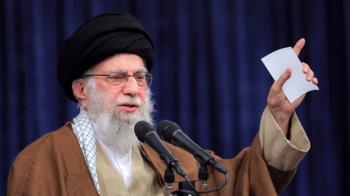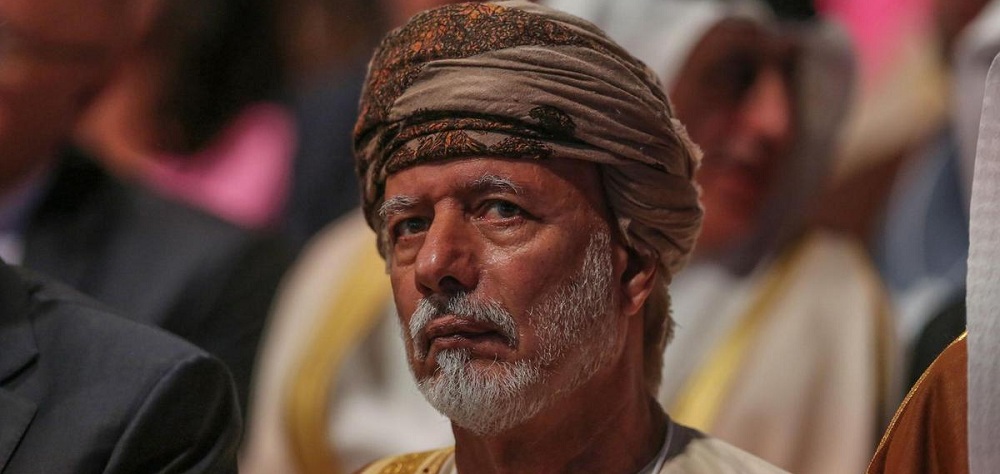Alwaght- Several months after taking over the power following the death of Sultan Qaboos, the new Omani Sultan Haithem bin Tariq last week reshuffled the cabinet and dismissed the long-serving foreign policy chief Yousef bin Alawi who has been holding the post of minister of state for foreign affairs since 1997.
The move, which drew welcome from Saudi Arabia, promoted some questions: Why was bin Alawi removed and what possible impacts does the replacement have on the foreign policy of Oman under the new sultan?
The reasons behind bin Alawi replacement?
Having in mind that it has not been long since the new sultan took over the power in the Arab sultanate, it is natural that the new leader may have his own changes to the cabinet and possibly foreign policy. This is normal in any country and the replacement of bin Alawi with Badr bin Hamad al-Busaidi can be regarded from this dimension.
The noteworthy point is that under the late Sultan Qaboos, bin Alawi was in charge of the architecture of the nation’s foreign policy as the leader was struggling with illness. In other words, because the sultan himself held the foreign policy post, his powers due to illness were fully transferred to the minister of state for foreign affairs.
Aware of bin Alawi’s deep influence both at home and abroad, the new sultan intended to replace him with an aligned figure to grab a bigger control over the country’s foreign policy, though in the decree al-Busaidi is named foreign minister not a minister of state for foreign affairs.
Besides, the publication of a recording of a conversation between Yousef bin Alawi and former Libyan dictator Muammar Gaddafi in which the Omani top diplomat attacks Saudi Arabia and its future role in the region can be another reason for the new sultan to remove the foreign policy czar. Publishing the tape, which drew Riyadh’s anger, pushed the Saudis to immediately welcome and congratulate the appointment of al-Busaidi. Odds are that the new sultan has removed the top foreign policy architect as he wants Oman to avoid involvement in regional tensions. He knows that tensions with neighbors, especially Iran and Saudi Arabia, can impair its regional role as an interlocutor in many regional cases and also compromise its security.
Should changes be expected after bin Alawi dismissal?
Regarding this replacement, what matters most importantly is if the country’s foreign policy lines will undergo changes after bin Alawi. In fact, this makes his replacement important and worthy of attention and discussion.
The sultanate of Oman has specific geopolitical traits that make it impossible to forsake its moderate foreign policy path and entry in a regional alliance against other regional actors. Therefore, it is hard to expect Muscat to give changes to its foreign policy. Actually, although in analyzing a country’s foreign policy an important individual in power should not be underestimated, the geographical, economic, and social features of Omani are in a way that with regard to the regional conditions, even massive changes at individual levels cannot allow changes of foreign policy.
Bin Alawi’s 23-year legacy
Bin Alawi, who held the post for 23 years and in the late years of Sultan Qaboos increased his grasp on foreign policy, led Muscat to a moderate foreign policy path to change into a mediatory actor in the region. In other words, with his right understanding of Oman’s specific position and regional conditions, bin Alawi sought to engage in balanced relations with regional powers and secured an important role for Muscat in significant regional cases. Along with distancing Oman from regional tensions which was a ground for economic growth in the country, this attitude turned Muscat into an influential player in heated regional cases and crises.
However, in recent years some regional changes posed a direct threat to the Omani national security and made it hard for the small country to continue its present foreign policy path. However, bin Alawi to the last day of his presence in his post tried to continue in the path he chose for 23 years.
It can be concluded that the dismissal of bin Alawi and the appointment of Al-Busaidi is directly decided by the new sultan to strengthen his role in foreign policy. Given the recent months’ hearsay about bin Alawi, his dismissal not only cannot be deemed as a decision from Muscat to walk away from neutrality and moderation policy but also it can be seen as an effort to boost this path. After all, its specific traits do not allow Oman to leave its neutrality and embrace one side against another side in the region.



























